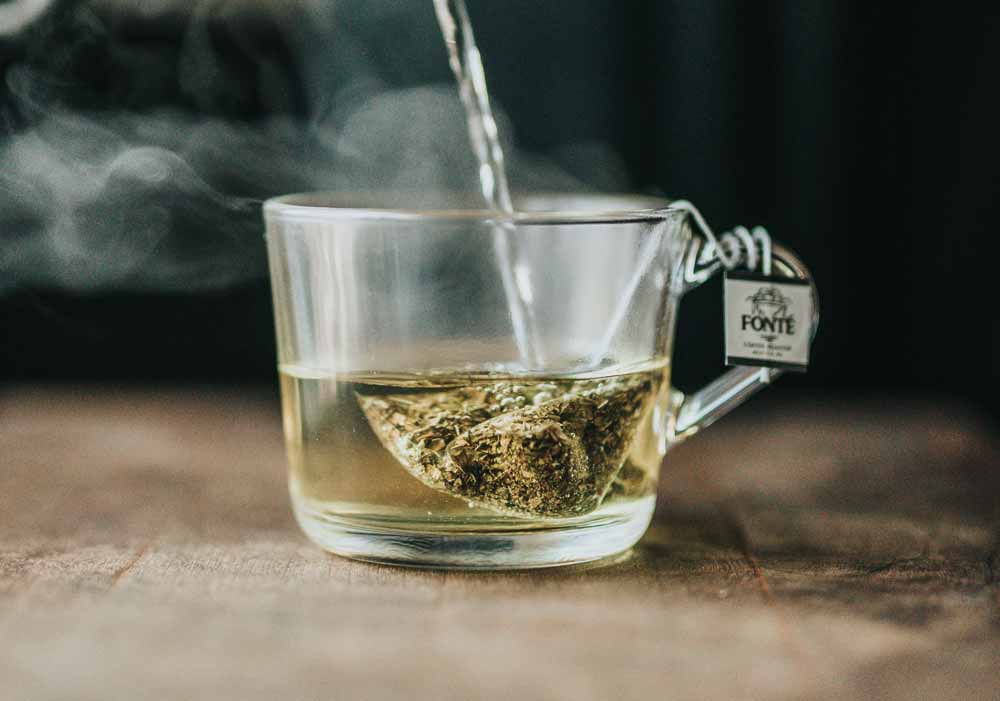The ancients were onto something – drinking green tea for mindfulness may surprise you at how much a simple drink can help your progress.
The wonders of L-theanine
Green tea, long revered for its numerous health benefits, contains a hidden gem known as L-theanine. This is an amino acid that plays a significant role in enhancing mindfulness practice. By sipping on green tea and incorporating L-theanine into your daily routine, you can unlock a range of benefits that support and deepen your mindfulness journey. Together this can benefit a holistic wellness approach to life.
First and foremost, L-theanine is celebrated for its ability to promote a state of calm focus and alert relaxation. This unique combination of mental clarity and tranquility is ideal for individuals practicing mindfulness. It allows you to be fully present in the moment, observing your thoughts and sensations without judgment. L-theanine helps to clear mental clutter and reduce distractions. It also facilitates a deeper and more meaningful mindfulness experience.
Furthermore, L-theanine’s impact on stress reduction and anxiety management is a boon for those aiming to become more mindful. It encourages the production of alpha brain waves, which are associated with relaxation and a sense of ease. This neurophysiological effect can be especially helpful during mindfulness meditation sessions, where the goal is to be present without being overwhelmed by stress or anxiety.
Proven to help fight depression
Depression is a prevalent mental health condition that affects millions of people worldwide. While it often necessitates a combination of treatments, the consumption of green tea has emerged as a potential natural aid in alleviating depressive symptoms. Green tea’s ability to positively influence mood and overall well-being is attributed to its unique components. Particularly the presence of antioxidants and amino acids.
Research has shown in human studies that green tea with the sum of caffeine and epigallocatechin gallate, to the sum of theanine and arginine (known as CE/TA), at a ratio of 3.9 and 4.7 improves depressed mood.
In addition, green tea is a rich source of antioxidants, particularly catechins, which are known for their neuroprotective properties. These antioxidants help combat oxidative stress and inflammation in the brain, both of which are associated with depressive symptoms. By reducing inflammation and oxidative damage in the brain, green tea creates an environment that is more conducive to overall mental well-being, helping to alleviate depressive symptoms.
A caffeine combo that can work
When it comes to selecting a beverage to accompany your mindfulness practice, green tea offers a distinct advantage over coffee or regular tea. This is primarily due to its unique caffeine content. Green tea provides a balanced and sustained release of caffeine, creating a more harmonious environment for mindfulness. Unlike coffee, which often delivers a sudden jolt of energy followed by a crash, or regular tea, where caffeine levels can be relatively lower, green tea strikes an ideal middle ground.
Green tea’s caffeine content, although lower than coffee, is just enough to stimulate alertness and concentration without inducing restlessness or anxiety. This gentle and sustained release of caffeine makes it an ideal companion for mindfulness practice, ensuring that you remain focused and attentive throughout your meditation or self-reflection sessions. Coffee’s intense caffeine surge can lead to scattered thoughts and heightened restlessness. Regular tea might not offer the necessary alertness. Yet green tea provides a calming yet attentive mental state conducive to a deeper and more insightful mindfulness experience.

The best time to drink green tea for mindfulness
The timing of your green tea consumption plays a pivotal role in safeguarding the tranquility of your sleep. Likewise it ensures your mindfulness practice remains undisturbed. While green tea offers numerous benefits for alertness and focus, it’s wise to confine your consumption to the morning hours. The reduced caffeine in the afternoon will avoid any potential disruptions to your sleep patterns. This is primarily due to green tea’s caffeine content. While more moderate than coffee, green tea can still interfere with your ability to fall asleep and maintain a restful slumber.
Caffeine, as found in green tea, stimulates the central nervous system, creating heightened alertness and attentiveness. For many individuals, consuming green tea in the morning can provide a much-needed boost to kickstart the day. This enhances their ability to stay present during mindfulness practice. However, indulging in green tea later in the day, especially during the afternoon or evening, can impede your ability to unwind and transition into a peaceful state conducive to sleep. Caffeine’s stimulating effects can linger for hours. This makes it challenging to experience the restorative sleep essential for mindfulness practice. By limiting green tea to the morning hours, you can fully enjoy its benefits for alertness and focus. And without jeopardising your precious sleep and the quality of your mindfulness sessions.
Can green tea benefit everyone?
It’s important to note that individual responses to green tea can vary, and the benefits may not be as pronounced for everyone. Some people are more sensitive to caffeine, while others may not experience the same degree of relaxation from L-theanine. Additionally, the quality of the green tea and the brewing method can influence its effects. Nonetheless, for many individuals, incorporating moderate amounts of green tea into their diet can be a healthy choice to support focus, mindfulness, and meditation.
